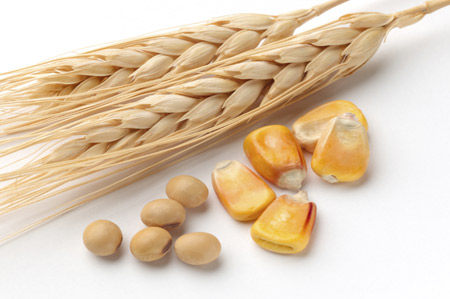 (Agrimoney) – Grains got off to a slow start on Wednesday, opening below Tuesday closes.
(Agrimoney) – Grains got off to a slow start on Wednesday, opening below Tuesday closes.
Kim Rugel of Benson Quinn Commodities said “a technically overbought market and lack of bullish weather forecast” had triggered profit taking.
“The grains are not getting any support from US weather forecasts this morning with outlooks through the next two weeks warmer and drier for most of the Midwest” said Mr Rugel, adding that “world weather is also improving with rains in forecast for dry areas of Canada and EU”.
The dollar strengthened today, weighing on dollar denominated prices across commodities, after Janet Yellen, chairwoman of the Federal Reserve, signalled that an interest rate hike was on its way in 2015.
“If the economy evolves as we expect, economic conditions likely would make it appropriate at some point this year to raise the federal-funds rate target, thereby beginning to normalise the stance of monetary policy,” Ms Yellen told the US Congress.
The US dollar was up over 0.5% on the day against a basket of currencies.
Russian estimates
Richard Feltes noted that the results of an Egyptian wheat tender yesterday “serve as reminder of over-priced US wheat” as Black Sea product continues to undercut its competitors in the global marketplace.
Egypt, the world’s biggest wheat buyer, now has reserves to last until February next year, after a spate of purchases.
With estimates for the Russian wheat crop rising, and fears of drought in wheat regions of Australia receding, Mr Feltes said there was “nothing on the table near term to spawn new buying”.
Evidence of strong Russian wheat yields has raised expectation for the crop to 58-60m tonnes, from a USDA forecast of 57m tonnes.
September Chicago wheat closed down 0.6% at $5.66 ¾ a bushel. September Kansas wheat closed down 0.4% at $5.59 a bushel.
Pollination fears
Corn was down early on, but reversed late in the day, as concerns gathered on the news of hot weather on the way, which could disrupt pollination.
Force majeure has been invoked on loading depots on the Illinois Rivers due to high waters, supporting row crop prices due to transport disruption.
US ethanol production was reported down 3,000 barrels a day from last week, to 984,000 barrels a day, while stocks of the corn based biofuel were down 101,000 barrels to 19.74m barrels.
August ethanol finished down 2.1% at $1.58 a gallon.
Midwest warmth
But the hot weather in the Midwest pushed soybeans down, spelling an end to weeks of heavy rain that have soaked soybean crops, despite strong demand data.
The US National Oilseed Producers Association reported June soybean crushing at 142,475 tonnes, down from 148,416 tonnes in May but up from 118,718 tonnes last year.
This is the strongest June on record, and above industry expectations of 141,500.
However, stocks of soyoil were higher than expected.
Soyoil stocks fell to 1.574bn lbs in June from 1.578 billion lbs in May, compared to analyst expectations of 1.562bn lbs.
Soybeans rose on the news, but still closed down on the day, with August soybeans ending up down 0.75% at $10.25 a bushel, while new crop November soybeans closed down 0.8% at $10.16 a bushel.
August soyoil closed down 2.4% at 31.65 cents a pound, while August soymeal closed up 1.6% at $362.2 a short tonne.
Data from China showed hog stocks were at their lowest level in decades, down over 5% from last year, which is bearish for feed demand, particularly corn and soy.
Softs suffer
Softs fell across the board, as the dollar strengthened.
Cocoa fell back from a four year high today, as September New York cocoa closed down 0.5% at $3,353 a tonne.
The market is waiting for North American grind data with will be released tomorrow, which is forecast to show a fall in demand from processors.
Brazil rains
Sugar broke a three day rally today. October raw sugar closed down 1.4%, at 12.46 cents a pound.
Prices have been rising on fears of unwanted rain in key growing regions of Brazil.
Writing before the market opened, Nick Penny, senior trader at Sucden Financial said “whilst rains are forecast in the next fortnight in centre south Brazil, these are likely to fall in the southernmost areas so the bulk of the cane area may not be as affected as was first feared”.
He added “with demand not showing up, any rally is likely to be short lived and we see the current one as basically forming a bear flag within the overall downtrend medium term”.
Coffee also moved down as the dollar rose. September arabica finished down 1.7%, at $1.2975 a pound while September robusts closed down 1.0% at $1,725 a tonne.




